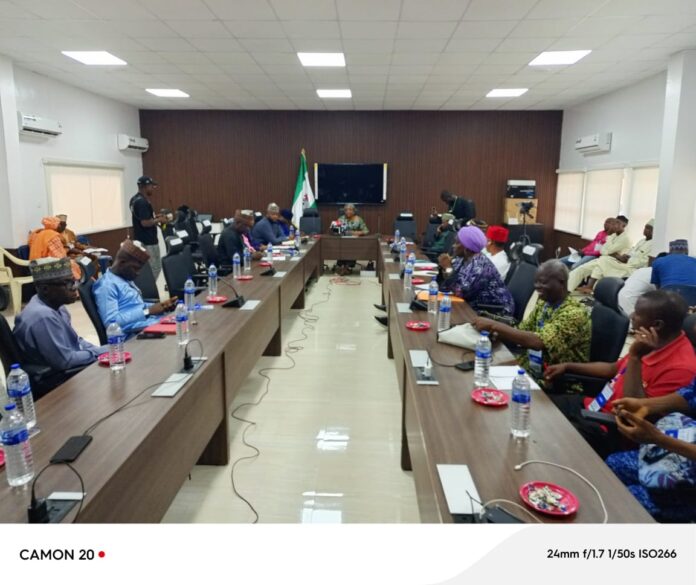By Olufemi Oni, Ilorin
The Kwara State government has lamented the dearth of medical doctors in the state’s health facilities as a result of brain drain, popularly called ‘Japa’ syndrome, that has largely hit the country’s heath sector.
Speaking during the 2025 first quarter inter ministerial press briefing organised by the state Ministry of Communication in Ilorin, the state capital, for cabinet members, the Executive Secretary, Kwara state Hospital Management Board, Dr. Abdulraheem Abdulmalik, said the board could not find doctors to recruit to work under the state government, despite approval given by Governor AbdulRahman AbdulRazaq to recruit new doctors.
Blaming the situation on the ‘japa syndrome’, the Executive Secretary said: “We have approval of His Excellency to recruit doctors but we can’t just find the doctors to recruit. Doctors are hot cakes now. If a doctor resigns in the morning, he will get another job in the afternoon.”
Dr. Abdulmalik, who said that the state government presently has only 99 as against the required 180 to 200 medical personnel for the state, added that only 96 medical doctors were on the government’s payroll before.
He added: “The three medical doctors that left the service returned after the recent increase in doctors’ salary by Governor AbdulRahman AbdulRazaq.
“We actually had 96, but after His Excellency increased the salary, three of them that ‘japa’ came back. So, we have 99 right now. We’re expecting more at the moment. We need about 180 to 200 medical doctors.”
Consequently, the board said it was developing a software application that would give patients, visiting its 45 health facilities, information on number of doctors available at a particular period of time, to reduce usual delay in seeing doctors and as well avert a situation where sick patients would collapse while waiting to see a doctor at the hospitals.
The Executive Secretary said rural areas are more affected by the challenge, adding that the board is working out better remuneration and incentives for doctors, “with resources available, which will be at par with what is obtainable in the western world where most of the doctors were leaving for greener pastures”.
Also, Dr. Abdulmalik said that there is a retention plan by the state government to close the gap on required number of medical doctors in the state, adding that the plan would kick start in four years time.
“On recruitment, we have presented prerequisite to The Excellency on actually harvesting doctors from medical schools. So, the state government sponsors you as a student for may be a year or two years and you pay back by working for the state for those two years in which the state has invested in you.
“That means we will continue to have a cycle of students. So, the state government sponsors you for three years, you work for the state government for three years before you ‘Japa’. So, that would mean there is a closing of the gap for medical doctors. Of course, that would kick off in about three to four years because we are starting from their Clinical Level, which is 400 Level,” he stated.
He said despite the challenges, the state’s health facilities have continued to witness improved enrolment, saying that between January and April this year alone, the 45 state’s health facilities saw 43,065 patients including 12,000 pregnant women out of which 2,000 of them were newly registered.
Also during the period under review, Dr. Abdulmalik said that the state’s health facilities carried out 1,000 surgeries across the state’s health facilities within the first quarter of 2015.
Also, the executive secretary said that the board recorded 1,384 child deliveries out of which 131 were carried out through caesarian section during the period under review.
The 131 caesarian sections, according to him, were an improvement as it represets 9.5 per cent, a figure, which he said came close to the World Health Organisation (WHO) recomended range of 10- 15 per cent.
Abdulmalik added that 30 mortalities were also recorded across heath facilities during the period under review.
He announced plans by the state government to partner with indigenous drug manufactures to reduce the amount of foreign exchange the state was expending on procurement of drugs abroad.

